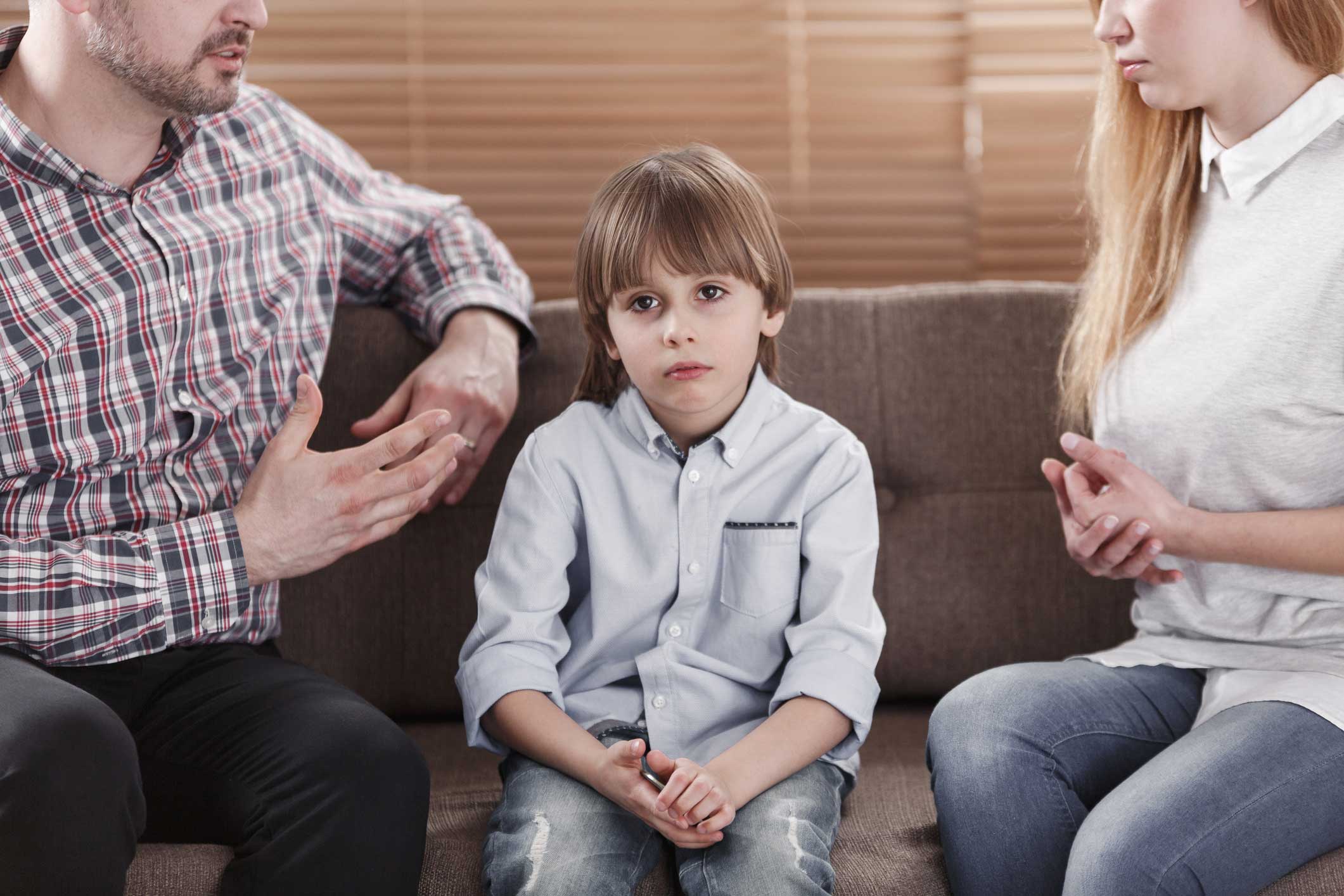Understanding Divorces Effects on Non-Traditional Families
Managing divorce in non-traditional families can bring forth unique challenges impacting all involved. Children may feel confusion and guilt amidst custody changes. Prioritize open communication and stability to provide reassurance. Establish strong support systems to cope effectively. Recognize the importance of legal considerations for protection and fair distribution. Implement coping strategies like self-care and therapy for emotional healing. Understanding these effects is crucial for maneuvering the complexities and fostering healing within your family.
Key Takeaways
- Non-traditional families face unique financial implications and emotional tolls during divorce.
- Children may experience confusion and guilt during custody shifts in non-traditional families.
- Establishing strong support systems and seeking community resources is vital for coping effectively.
- Understanding legal complexities and seeking legal advice ensures protection and fair distribution.
- Implementing coping strategies, self-care practices, and therapy is essential for emotional healing.
Unique Challenges of Non-Traditional Families

Understanding the unique challenges faced by non-traditional families is vital for addressing the complexities of divorce within these diverse family structures. Non-traditional families often face a myriad of financial implications when going through a divorce. This can be particularly challenging as these families may not have the same financial stability as traditional family units.
The emotional toll of divorce can also be heightened in non-traditional families due to the lack of societal support and understanding. Moreover, non-traditional families often have to combat stigma and societal expectations that can exacerbate the already stressful process of divorce. These families may feel isolated or judged for not conforming to traditional family norms, adding an extra layer of difficulty to an already challenging situation.
It’s essential to recognize and address these unique challenges faced by non-traditional families going through divorce to provide them with the support and resources they need during this trying time.
Impact on Children and Parenting
Managing divorce in non-traditional families can greatly affect children and parenting dynamics, shaping their emotional well-being and relationships.
When it comes to child custody, the shift can be particularly challenging for children in non-traditional families. They may experience feelings of confusion, loss, and even guilt. It’s important for parents to prioritize open communication and reassurance during this time.
Co-parenting dynamics also play a significant role in how children adapt to divorce. Collaborating with your ex-partner to create a stable and consistent parenting plan can provide children with a sense of security and routine. Remember, putting your child’s needs first is vital for their well-being. Maintaining a united front, even when separated, can help children navigate the changes more smoothly.
While divorce can be tough on children in non-traditional families, it’s important to show them love, understanding, and patience. By fostering a supportive environment and working together with your co-parent, you can help your children adjust and thrive despite the challenges of divorce.
Support Systems for Non-Traditional Families

Managing divorce in non-traditional families can be challenging, but establishing strong support systems is crucial for coping with the changes effectively. During this difficult time, remember that you aren’t alone. Community resources can provide a valuable network of support, offering understanding and guidance as you navigate this shift. Connecting with others who’ve experienced similar situations can help you feel less isolated and more empowered to face the challenges ahead.
In addition to emotional wellbeing, seeking out financial assistance can alleviate some of the stress that often accompanies divorce. Many organizations offer support in the form of financial aid or resources to help non-traditional families during this period of change.
Moreover, counseling services can provide a safe space to express your feelings, process your emotions, and develop healthy coping mechanisms.
Legal Considerations and Complexities
Understanding the legal considerations and complexities of divorce in non-traditional families can be overwhelming, but with the right guidance and support, you can guarantee that your rights and interests are protected.
When managing a divorce, especially in a non-traditional family setup, it’s important to be aware of the financial implications and potential custody battles that may arise. These aspects can greatly impact your future and the well-being of your family members.
Financial implications can be intricate in non-traditional families, particularly when shared assets, businesses, or debts are involved. Seeking legal advice to comprehend how these factors play into the divorce settlement can ensure a fair distribution and safeguard your financial stability moving forward.
Custody battles, another complex facet, can be emotionally draining. It’s essential to prioritize the best interests of the children involved while also advocating for your parental rights. With the right legal representation and a clear understanding of your rights, you can manage custody arrangements with sensitivity and assertiveness.
Strategies for Coping and Healing

Managing the emotional turmoil of divorce in non-traditional families can be overwhelming, but implementing effective coping strategies is essential for your healing process.
Self-care practices play an important role in moving through this challenging time. Make sure to prioritize activities that bring you peace and relaxation, whether it’s meditation, exercise, or spending time with loved ones.
Therapy can also provide a safe space for you to process your emotions and develop coping mechanisms.
Building emotional resilience is key to progressing after a divorce. Focus on developing healthy communication skills to express your feelings and needs effectively. Open and honest conversations with your ex-partner, children, or other family members can help foster understanding and cooperation during this change.
Frequently Asked Questions
How Can Non-Traditional Families Navigate Societal Stigma Post-Divorce?
Handling societal stigma post-divorce in non-traditional families can be challenging. Seek community support, utilize counseling options for emotional well-being, and consider legal advocacy if needed. Managing stigma is essential for your family’s healing and growth.
What Are the Financial Implications of Divorce for Non-Traditional Families?
Managing the financial implications of divorce for non-traditional families can be overwhelming. Seek legal advice for sound financial planning. Understand the emotional impact and consider coping strategies to help you through this challenging time.
How Do Non-Traditional Families Address Custody and Visitation Arrangements?
When it comes to custody and visitation arrangements, it’s important for non-traditional families to understand their legal rights. Co-parenting strategies can help navigate these challenging waters and guarantee the best outcomes for everyone involved.
What Resources Are Available for Non-Traditional Families During Divorce Proceedings?
During divorce, non-traditional families can access legal assistance for custody and visitation issues. Seek support from therapists or support groups for emotional guidance. Remember, you’re not alone, and there are resources available to help you through this challenging time.
How Do Non-Traditional Families Maintain Relationships With Extended Family Post-Divorce?
To maintain relationships with extended family post-divorce, focus on open communication at family gatherings. Seek emotional support from loved ones while establishing healthy boundaries. Remember, everyone’s feelings matter, and working through this together can strengthen bonds.
Conclusion
To sum up, managing the effects of divorce on non-traditional families can be incredibly challenging. Remember to rely on your support system, prioritize open communication with your children, and seek out legal guidance when needed.
By approaching the situation with understanding and compassion, you can create a path towards healing and resilience for both yourself and your loved ones. Stay strong and know that you aren’t alone in this journey.

Hey there! 👋 I’m a proud mom and passionate writer, sharing my parenting journey. 📝 Join me as I navigate the ups and downs of motherhood, offering tips, advice, and a sprinkle of humor along the way. 🌟







